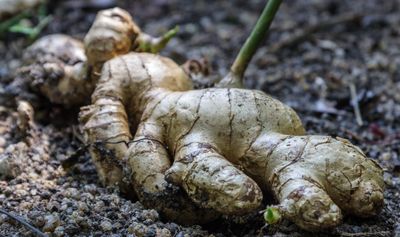About Ginger Harvesting
A perennial herb, ginger prefers a warm, humid climate in partial sun and is suited to USDA zones 7 through 10 or it can be potted and grown indoors. Folks have been harvesting ginger for its distinctive aroma and the flavor complements of gingerols. Gingerols are the active components in ginger that give it that fragrance and zingy flavor. They are also anti-inflammatory compounds that help alleviate the pain of arthritis. Research has shown that these gingerols help boost the immune system, protect against colorectal cancer, and treat ovarian cancer as well, and are integral to almost any stir-fry!
When to Pick Ginger
Once the plant has blossomed, the rhizomes are mature enough for harvesting, usually in about 10 to 12 months from sprouting. At this juncture, the leaves have yellowed and dried and the stems are falling over. The rhizomes will have a firmer skin that will bruise less easily when handling and washing. If you want baby ginger root, the type that is usually pickled with tender flesh, mild flavor, and no skin or stringy fiber, harvesting can begin about four to six months from sprouting. The rhizomes will be cream colored with soft pink scales.
How to Harvest Ginger Roots
To precipitate an early harvest of mature ginger, trim the tops of the plants off two or three weeks prior to harvest. Use your hands to gently extricate the outer rhizomes without disturbing the others if you like or harvest the entire plant. If you leave some rhizomes, the plant will continue to grow. You can also overwinter rhizomes as long as you store them above 55 degrees F. (13 C.).
